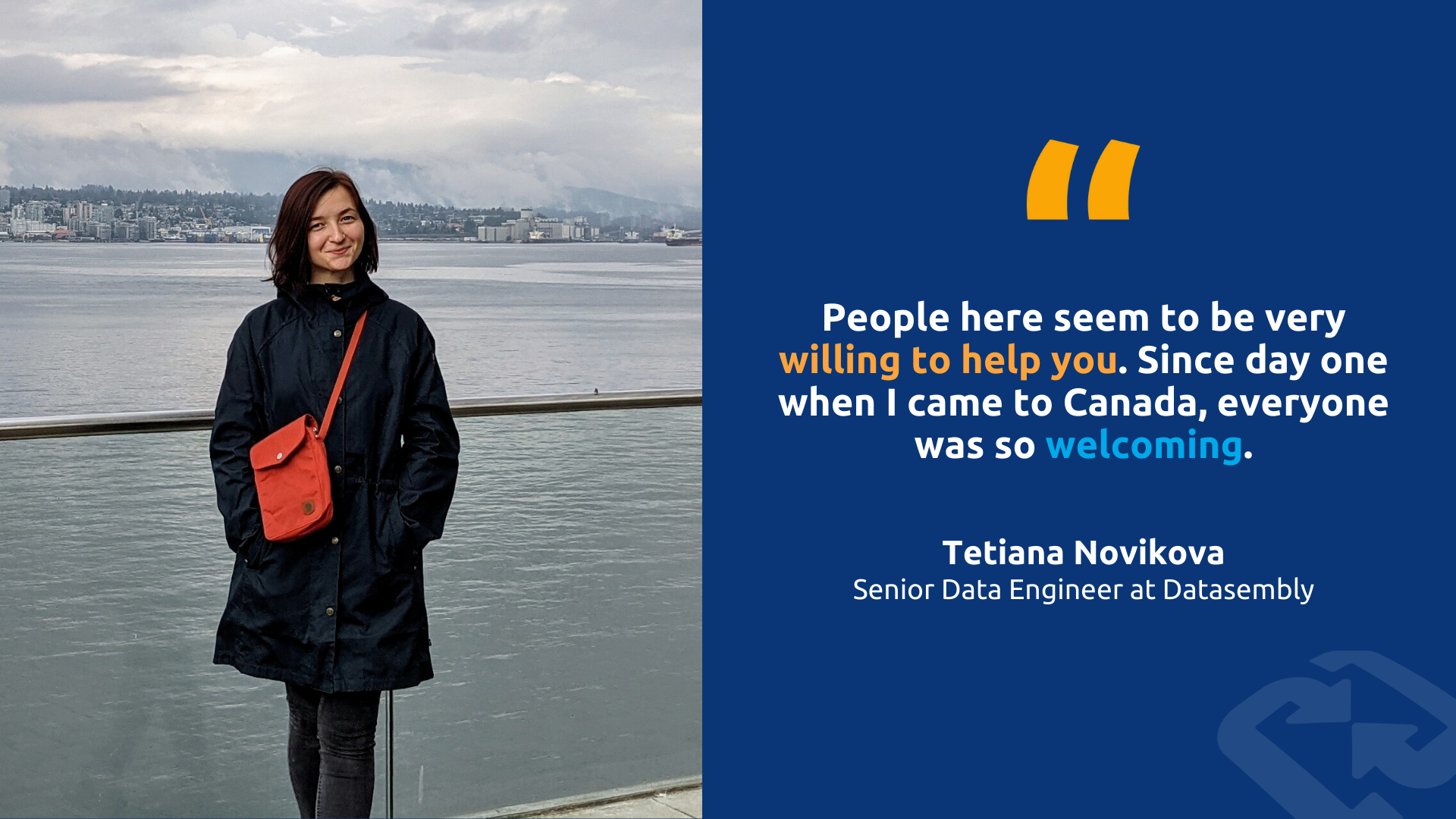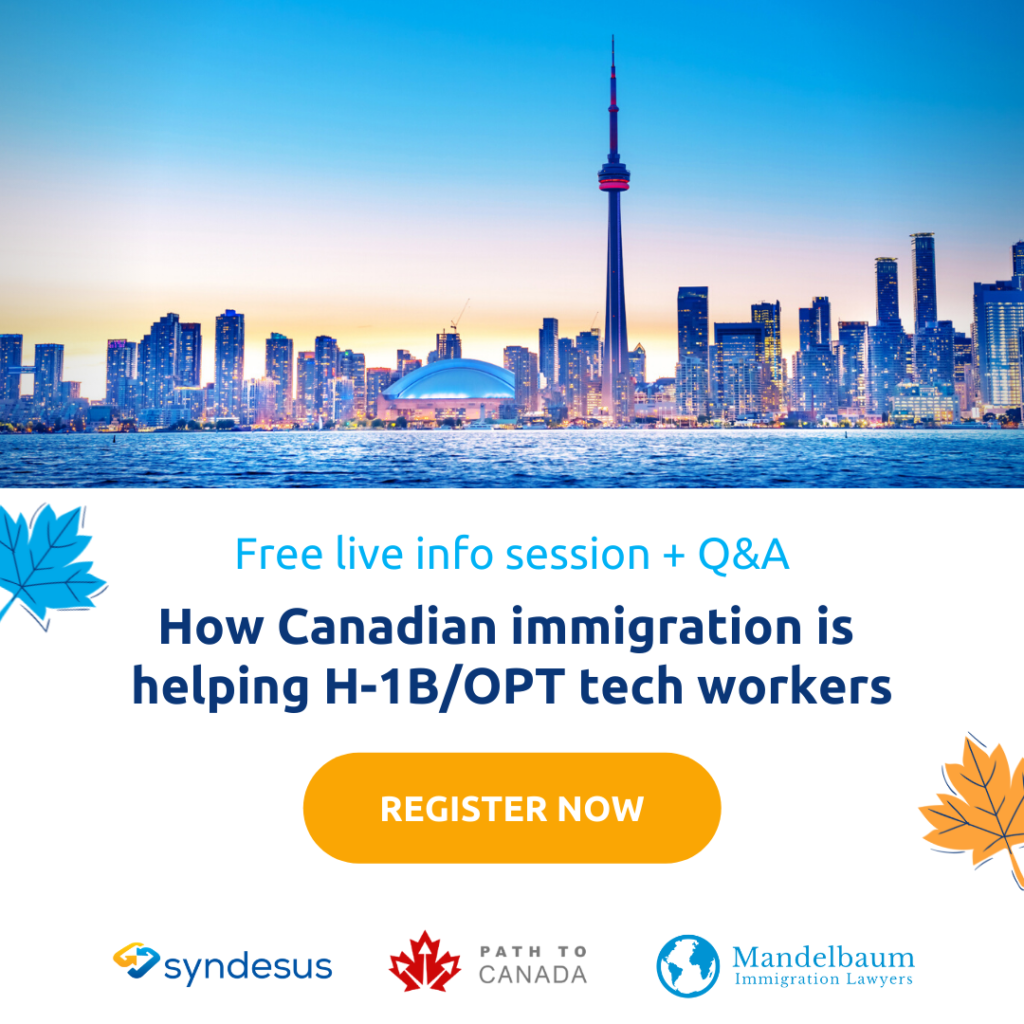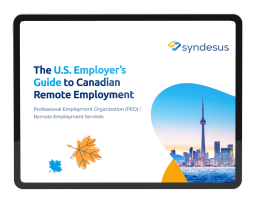And How One Immigrant Tech Worker is Now Living the Canadian Dream
The Problem: Barriers to Retaining Good Tech Talent in the US
When it comes to finding and retaining great talent, tech companies have many challenges. From recruitment to training, to providing individual growth plans – investing in your employees to keep them happy, especially in a post-pandemic world, is both strategic and costly.
In fact, according to a recent report by the Work Institute, turnover trends have increased 88% in the last decade and consequently, turnover costs exceeded $630 billion in the US in 2020. The total cost of losing each employee varies, but organizations must take into account onboarding, lost productivity, team morale, and more.
Further, how do US organizations retain skilled foreign workers when they are at the mercy of a flawed lottery-based immigration system?
There are over 200,000 skilled immigrant workers that apply for the H-1B lottery every year. The process only grants 85,000 opportunities to apply and guarantees nothing.
This is the question that puzzled Virginia-based tech company, Datasembly. They explored options and worked to retain one of their top software engineers, Tetiana Novikova, whose temporary visa was set to expire.
There are over 200,000 skilled immigrant workers that apply for the H-1B lottery every year. The process only grants 85,000 opportunities to apply and guarantees nothing. This means that many skilled workers end up in a state of constant limbo, anxiety, and uncertainty – waiting for a system that may never recognize their hard work.
The American Dream Can Be Hard to Attain
Originally from Lviv, Ukraine, Tetiana came to the US in 2016 on a business and tourism visa, but after six months she loved it so much she wanted to stay. With a keen interest in Scala programming and her sights set on becoming a data engineer, she pursued a science degree at Utah Valley University.
One of her mentors introduced her to Datasembly while she was still in the Ukraine. When she finished her degree, she began working there as an intern and was hired full-time in May of 2020.
Tetiana applied for many visas over two years, not just H-1B, and said she tried to keep her hopes up. Her work was so highly valued, that the company went out of their way to help her with her immigration documents, to ensure she could stay on the team.
“I’m really thankful that they did all of that just so I could be there at the company.”
It was clear that Datasembly really wanted to keep Tetiana, despite her visa risk, and the feeling was mutual. Tetiana explains the culture at Datasembly feels like family, and she enjoys the social and strategic opportunities the company provided.
“It was amazing. Everyone just got so close,” she says when talking about company off-sites (pre-COVID).
Unfortunately, she was not selected in the H-1B lottery multiple times and was running out of hope.
The Solution: Canada as Tetiana’s Plan B
As Tetiana awaited her final chance at H-1B lottery selection, she discussed other options with the leadership team at Datasembly. The company was already working with Syndesus (a Canadian PEO who helped them remotely employ Canadian tech workers) and they discovered through a conversation with Syndesus CEO Marc Pavlopoulos that Tetiana had the option to work in Canada through the country’s Global Talent Stream program. When she discovered this possibility Tetiana says she was caught off guard.
“I never had this thought in my head that Canada was an option. I thought it was way too complicated, but it was actually a solid plan.”
Within two months, Tetiana discovered she was yet again not selected in the H-1B lottery but (through the help of Syndesus) was approved for her Canadian work visa through Global Talent Stream. She could work anywhere she wanted within the country. Now she had some decisions to make.
Turning Her Sights to the “Canadian Dream”
“I didn’t know anything about Canada, so how was I supposed to choose a city?” Without spending any time in Canada, she intuitively chose Vancouver. She’d heard good things about the west coast, and it reminded her of one of her favorite US cities, Seattle.
Syndesus worked with Tetiana to advise her on important settlement tasks such as banking, setting up a phone number, and other useful information. They also helped her set up her Social Insurance Number (SIN) and get enrolled in her healthcare benefits plan.
“We had a call with Marc a few days before I left the US where I was able to ask him all the questions I had, and he walked me through important things I should be aware of.”
From there, she packed her things and bravely made her way to a brand new country. Tetiana was approved for her work visa at the Vancouver airport.
“It was really easy in comparison to the US process. If you have the qualifications and a job offer from a Canadian company, you can easily get approved. Syndesus is now my employer of record in Canada. But nothing has changed otherwise with my work at Datasembly."
Datasembly is a flexible and remote work environment, so her new location didn’t affect much. She was back working on the second day she arrived in Canada from the Airbnb she secured for a month to allow time for an apartment hunt.
Syndesus now serves as her remote employer. They set up her payroll and will continue to manage her taxes, healthcare, legal requirements, and other HR services. This also alleviates any risk for Datasembly, they do not need to have a corporation or to pay taxes in Canada because Syndesus is their Professional Employer Organization (PEO).
“It was really easy in comparison to the US process. If you have the qualifications and a job offer from a Canadian company, you can easily get approved. Syndesus is now my employer of record in Canada. But nothing has changed otherwise with my work at Datasembly.”
She’s now settling into her new life in Vancouver and says she loves it.
“People here seem to be very willing to help you. Since day one when I came to Canada, everyone was so welcoming.”
The Results: Hard Work, Remotely, Pays Off!
In the span of five years, Tetiana moved to the US from Eastern Europe, learned a new language, went back to university, moved to another country, and dealt with the ramifications of a global pandemic.
Datasembly has grown since Tetiana arrived. The company is nearly 70 people spread across the US and Canada, and though the culture has changed, Tetiana says they’re still inclusive and close. After four years at the company, Tetiana was recently promoted to Senior Data Engineer.
She’s relieved that she can now leave Canada when she wants to without being in the throes of a rigorous visa process. She’s looking forward to visiting her family in Europe, exploring more of Canada, and having a garden someday. She’s even considering applying for permanent residency in a year, and maybe even citizenship someday. But she’s also aware that after working in Canada, it will be easier for her to return to the US one day.
“I love it here. You have all four seasons, and everything is clean, and, in some ways, it reminds me of home.”
Tetiana’s Advice to Other Immigrant Tech Workers
When asked if she has any advice for skilled workers who are trying to get their visas in the US, she says: “They should try to go to Canada. It was way easier for me, probably because I already had an offer from the company, but if they find any employer who’s willing to help, then Canada is really similar to the US”
To learn more about your options in Canada visit: https://syndesus.com/non-canadian-employees/






